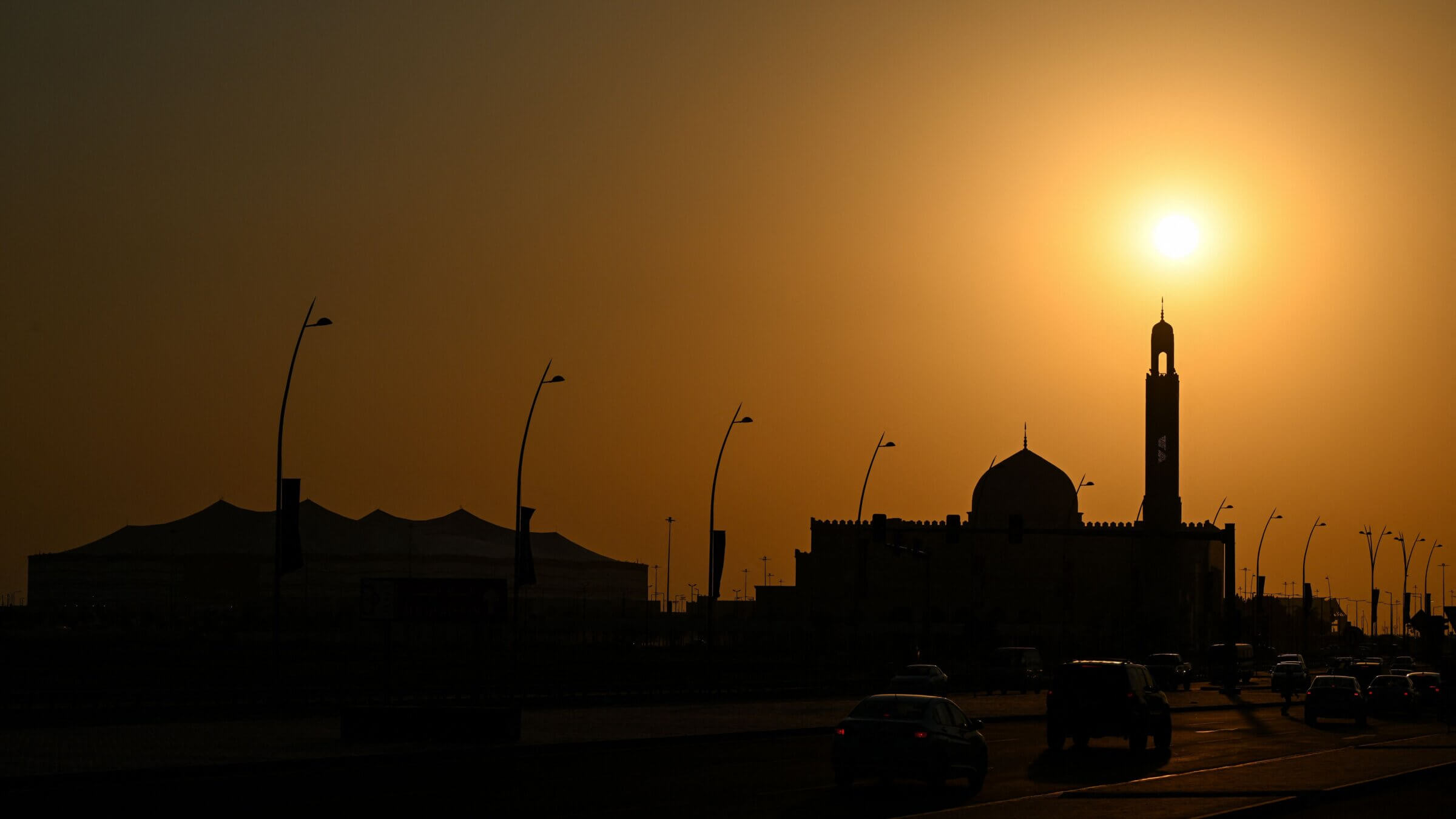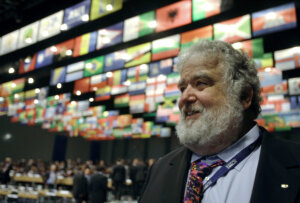Why Jews (and everyone else) should boycott the World Cup this year
Thousands have died or withstood inhumane conditions in order to bring this global sporting event to Qatar

The 2022 FIFA World Cup tournament is being held this year in Qatar. Photo by Getty Images
The week before Thanksgiving, one of the largest sporting events in the world will take place in the unlikely location of Qatar. In one tiny kingdom of less than 3 million people, 32 national teams will fight it out on the soccer field to see who will be crowned champion of the beautiful game. And there’s drama and hope since anyone could win, with neither South America nor Europe having a dominant team at the moment. After a decade of small boys around the world wearing their shirts, the two venerable greats, Lionel Messi and Cristiano Ronaldo, will have their final chances for global glory with Argentina and Portugal respectively. And even the USMNT finally has some players worth following.
But, if you care about human rights or deadly disregard of construction workers, if you worry about the normalization of relations with Iran or international recognition of Israel, if you care about money perverting global institutions or about a version of Sharia law that oppresses women, outlaws Jewish symbols and denies any LGBTQ+ rights, you should not watch any games and you should not patronize any corporation that sponsors FIFA’s shameful World Cup.
Many large sporting events and construction projects involve a certain amount of compromise, some potentially shady practices and a willingness to deal with unsavory characters. A whole slew of Olympic scandals including Rio, Beijing and Salt Lake City can testify to that. This World Cup, though, is on an entirely different level. Although direct bribery has never been proven, no one has ever offered a convincing reason why FIFA would hold the World Cup in a tiny soccer desert (in both senses) except for its vast oil wealth. And, for circumstantial proof, since 2010, almost the entire FIFA executive committee that, in one vote, approved World Cups in Russia (between its invasions of Crimea and Ukraine) and the oil-rich theocratic kingdom of Qatar has left in disgrace.

The reason we know a lot about the corrupt state of FIFA throughout the decade between the 2010 vote to give Russia 2018 and Qatar 2022, is the late Chuck Blazer. Blazer, with his distinctive bushy white beard, was in the room for the 2010 vote on Qatar and Russia. A Jewish boy from Forest Hills, Queens, he brought pride, then shame, then a degree of satisfaction to other American Jews who love soccer. America’s FIFA Executive Committee member from 1996-2013, he admitted to conspiring with other committee members to accept bribes related to the World Cup bids of Morocco and South Africa. He then became a vital informant in FBI, IRS and other investigations into soccer malpractice.
Shortly after the vote, Amnesty International predicted that the abusive kafala system of modern slavery that Qatar uses for building large projects would kill up to 4,000 workers constructing World Cup infrastructure. Due to massive international pressure, kafala was legally abolished, but only in 2020. Although the kingdom of Qatar — for obvious reasons — has failed to institute any official investigations, the total number of deaths has been much larger than Amnesty predicted. Approximately 17,000 migrant workers died; though it is hard to tell exactly how many deaths were directly related to the World Cup, that has been the major Qatari infrastructure project of the past decade.
And, for every death, there are countless workers from Nepal, India, Bangladesh, Pakistan and Sri Lanka who have survived despite being exposed to extreme heat, stuck in substandard and unsanitary housing, overworked and deprived of proper medical treatment. So, though this is not quite a 1936 Berlin Olympics, if you would be comfortable time-traveling to visit a celebration of the Pharaohs at the opening of the pyramids, you will be fine with this World Cup.

When Israel failed to qualify from their group, that solved a headache for FIFA and the Qataris who are bankrolling this sportswashing competition. Although the organizers had explicitly stated they would welcome an Israeli team, an entire contingent of Israeli fans waving flags of the Jewish state would be a constant provocation for a state that bans Jewish and Christian symbols in a way that, say, Swiss fans flying their white-crossed flag would not. So while Israelis have taken part in recent competitions in Qatar — Alexander Shatilov even won a gymnastics gold medal in Doha in 2019 — governing attitudes are such that local television stations cut away from the event when the Israeli national anthem is played.
Qatar’s alleged funding of Hamas and links to Iran may give pause even to those people who are fine with Qatar’s male guardianship laws for women that mean men need to grant women permission to, among other things, marry, travel abroad, work for the government and get certain types of reproductive health care. One reason why Israel is unlikely to normalize relations with Qatar (as it has with neighboring Bahrain) is that Qatar and Iran are deeply economically linked. Both countries are deeply dependent on sales of fossil fuels whose exploitation is causing climate change.
Much of Qatar’s oil comes from fields that are under Iran’s influence and the two countries jointly own and operate the South Pars (Persian)/North Dome field — by far the world’s largest natural gas field. Since Iran has a population 30 times that of Qatar, with a vastly bigger and more experienced standing army, there’s no chance that Qatar’s ruling family will jeopardize their phenomenal wealth by angering Iran through criticism of its policies or deeply antisemitic leaders.
Yes, the U.S. team could be quite good. Yes, there will be intriguing sporting matchups along with skill and drama — including the last hurrahs of some sporting greats. But though this is a tournament I’ve watched every four years since the 1978 tournament in Argentina, and though this is a sport I watch religiously every week, I will not be watching it this year and you should not watch it either.
A message from our Publisher & CEO Rachel Fishman Feddersen

I hope you appreciated this article. Before you go, I’d like to ask you to please support the Forward’s award-winning, nonprofit journalism so that we can be prepared for whatever news 2025 brings.
At a time when other newsrooms are closing or cutting back, the Forward has removed its paywall and invested additional resources to report on the ground from Israel and around the U.S. on the impact of the war, rising antisemitism and polarized discourse.
Readers like you make it all possible. Support our work by becoming a Forward Member and connect with our journalism and your community.
— Rachel Fishman Feddersen, Publisher and CEO






























